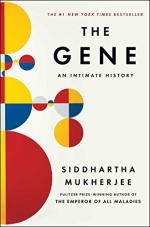|
This section contains 294 words (approx. 1 page at 400 words per page) |

|
Summary
In the late half of the 20th century, with genetic testing of fetuses available, "this was eugenics being reincarnated, if more politely" (272). According to its advocates, this "newgenics" or "neo-eugenics" was different from past eugenics for two reasons: 1) "the genetic tests that formed the basis of fetal selection were, its proponents insisted, objective, standardized, and scientifically rigorous"; and 2) "prenatal testing and selective abortion were performed with no state mandate, no centralized directive, and full freedom of choice" (272). Newgenics was nevertheless criticized by many, particularly by geneticists who were discovering that "the interactions between human genes and illnesses were vastly more complicated than newgenics might have anticipated" (275).
Analysis
This chapter reintroduces the theme of eugenics in the form of "newgenics." This is an extremely important chapter for this theme because it outlines the fact that eugenic ideas are not only the...
(read more from the "Interfere, Interfere, Interfere" (Part Four) Summary)
|
This section contains 294 words (approx. 1 page at 400 words per page) |

|




